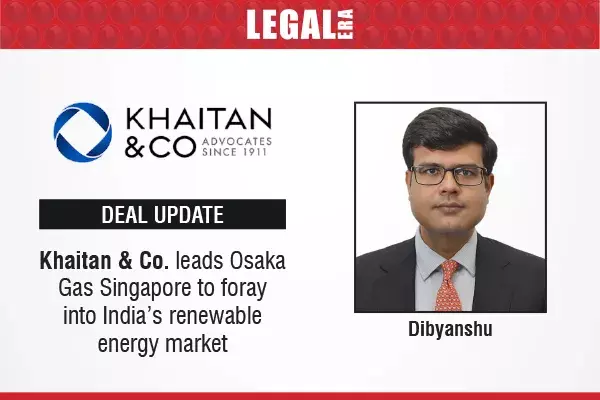SEBI imposes penalty of Rs. 10 lakhs on Morisson Traders
In the matter relating to dealings in Illiquid Stock Options, a penalty of Rs. 10 lakhs has been imposed upon Morissons;

SEBI imposes penalty of Rs. 10 lakhs on Morisson TradersIn the matter relating to dealings in Illiquid Stock Options, a penalty of Rs. 10 lakhs has been imposed upon Morissons Traders and Developments Pvt. Ltd. (the Noticee). In this case, SEBI had conducted an investigation into the trading activity in illiquid stock options on BSE Limited (BSE) for the period April 01, 2014 to September...
SEBI imposes penalty of Rs. 10 lakhs on Morisson Traders
In the matter relating to dealings in Illiquid Stock Options, a penalty of Rs. 10 lakhs has been imposed upon Morissons Traders and Developments Pvt. Ltd. (the Noticee).
In this case, SEBI had conducted an investigation into the trading activity in illiquid stock options on BSE Limited (BSE) for the period April 01, 2014 to September 30, 2015 (Investigation Period) after observing large scale reversal of trades in the Stock Options segment of the BSE.
The outcome of the investigation revealed that during the Investigation Period, a major chunk of the trades executed in the BSE Stock Options Segment were trades which involved reversal of buy and sell positions by the clients and counterparties in a contract.
The Noticee was one such client whose reversal trades involved squaring off open positions with a significant difference without any basis for such change in the contract price.
The aforesaid reversal trades allegedly resulted into generation of artificial volumes, leading to allegations that the Noticee had violated the provisions of Regulation 3(a), (b), (c), (d) and Regulation 4(1), 4(2) (a) of the SEBI (Prohibition of Fraudulent and Unfair Trading Practices related to Securities Markets) Regulations, 2003 (SEBI PFUTP Regulations).
The Noticee, in this matter, submitted the following- the trades were executed on the floor of the exchange with due compliance with all the rules and regulations of the exchanges; at no point of time was there any warning or any observation from the regulators about the stock options & underlying scrips executed by them; even assuming the stocks were illiquid, then any small quantity or volumes would look significant as there are no active traders in the market; the observations regarding the stock options being illiquid is incorrect;.the trades in question were in the normal course of business and there is nothing amiss in the executed trades; for the transaction to be termed fraudulent, as per the definition of 'fraud', there has to be an 'inducement' and SEBI has not even alleged inducement in the entire Show Cause Notice.
According to the Adjudicating Officer, the nature of trading clearly indicated an element of prior meeting of minds and a collusion to carry out trades at pre-determined prices. The contracts in question were easy to manipulate and were chosen by the Noticee to execute non-genuine trades.
It was also elucidated that when the impact of artificial volumes created by the two counter parties is seen as a whole, it is not possible from the material available on record to quantify the amount of disproportionate gain or unfair advantage resulting from the artificial trades between the counterparties or the consequent loss caused to investors as a result of the default.
The Noticee, by engaging in such non-genuine transactions, created a misleading impression of trading in respective contracts while dealing in Stock Options contracts in a fraudulent manner.
The scheme, plan, device and artifice employed by the Noticee in this case of executing reversal trades in illiquid stock options contracts at irrational, unrealistic and unreasonable prices, tantamount to fraud on the securities market in as much as it involves non-genuine/ manipulative transactions in securities and misuse of the Securities Market.
According to SEBI, "The non-genuine and deceptive transactions of the Noticee are, prima facie, covered under the definition of 'fraud' and the dealings of the Noticee in this case were 'fraudulent', as defined under regulation 2(1)(c) of the SEBI (PFUTP) Regulations, 2003 and prohibited under the provisions of Regulations 3(a), (b), (c) and (d) and 4(1) and 4(2)(a) SEBI (PFUTP) Regulations."





